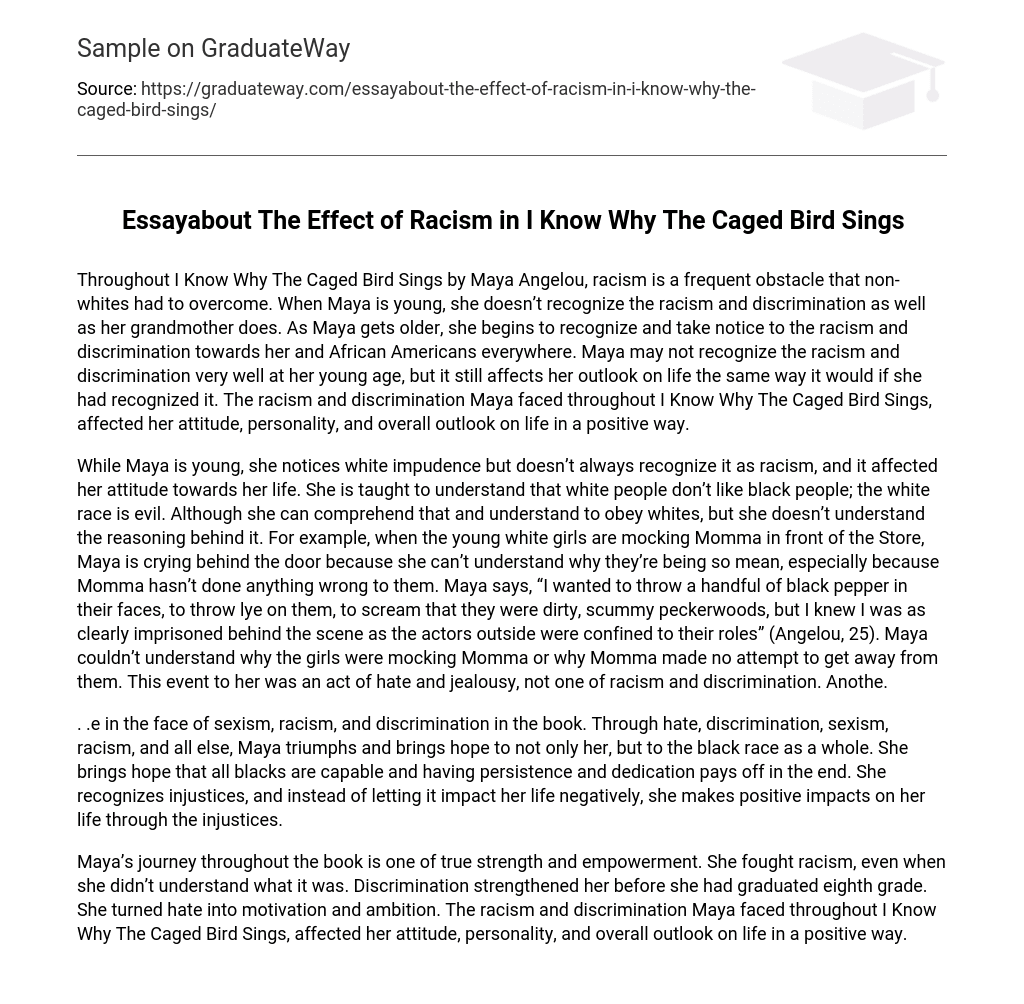Throughout Maya Angelou’s I Know Why The Caged Bird Sings, racism is a recurring obstacle confronted by people of color. In her youth, Maya remains oblivious to the full extent of racism and discrimination, in contrast to her perceptive grandmother. However, as Maya matures, she gradually recognizes the widespread presence of racism and discrimination directed towards both herself and the African American community.
Despite Maya’s young age, she may not fully comprehend or acknowledge racism and discrimination; however, these factors still greatly influence her perspective on life. The encounters with racism and discrimination that Maya faces in I Know Why The Caged Bird Sings considerably mold her attitude, personality, and overall outlook on life in a positive way.
During her youth, Maya witnessed disrespectful behavior from white individuals, which at times she didn’t recognize as racism. These encounters had a profound impact on her perspective towards life. She was taught to believe in the existence of animosity between black and white people, with the notion that the white race possessed inherent wickedness. Although she understood the concept and the necessity to comply with white individuals, she still found it difficult to comprehend the reasoning behind it.
Maya expresses her frustration and confusion when witnessing young white girls mocking Momma in front of the Store. Unable to comprehend their cruelty, Maya becomes overwhelmed with emotions and can’t help but cry behind the door. She finds it unfair that Momma, who hasn’t harmed them in any way, is being targeted. Maya feels the urge to retaliate by throwing black pepper or lye at them and calling them derogatory names like “dirty, scummy peckerwoods.” However, she realizes that she is just as trapped behind the scenes as the actors outside are confined to their roles (Angelou, 25).
Maya couldn’t understand why the girls were mocking Momma or why Momma didn’t try to escape from them. To her, this incident represented hate and envy rather than racism and prejudice. Despite facing hatred, prejudice, sexism, racism, and all other forms of discrimination, Maya overcomes these challenges and inspires hope not just within herself but also in the entire black community. She provides hope that all black individuals are capable of success, emphasizing that persistence and dedication lead to rewards. While Maya acknowledges the existence of injustice, she doesn’t allow it to negatively impact her life; instead, she responds with positive changes.
Maya’s journey in the book is characterized by her innate strength and empowerment as she confronts racism, even without fully comprehending its nature. Her experiences of discrimination during her early school years become sources of resilience and determination. Maya transforms hatred into motivation and ambition, and the racism and discrimination she encounters throughout I Know Why The Caged Bird Sings significantly impact her attitude, personality, and overall perspective on life—in a positive manner.





